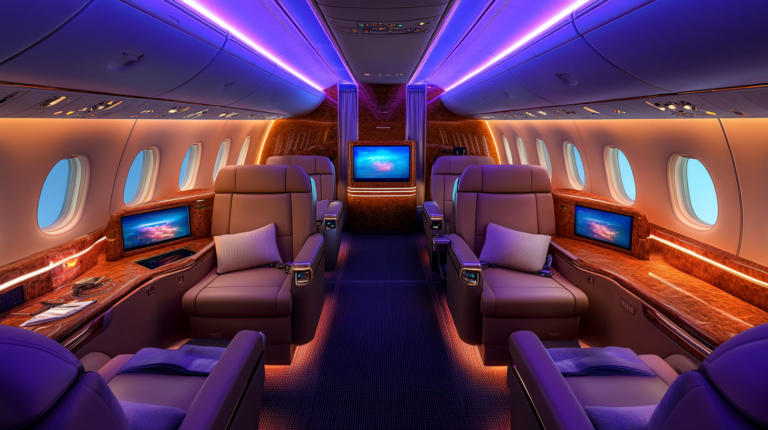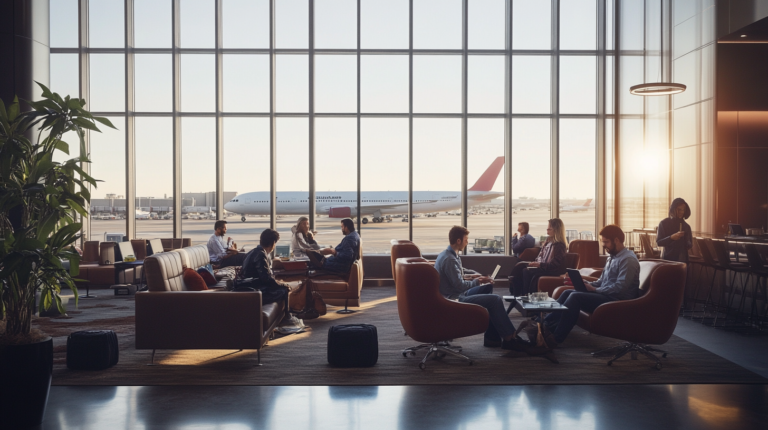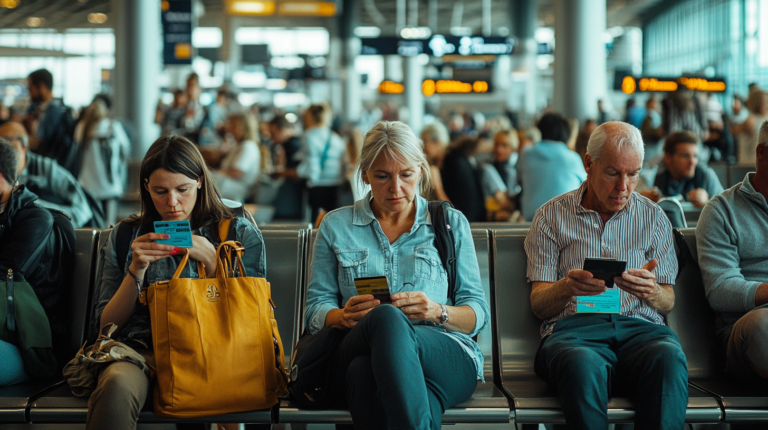Embracing ‘Sleep Divorce’ During Vacation: Transforming Couples’ Travel Experiences for Enhanced Well-Being
In the ever-evolving landscape of travel, a new trend is reshaping how couples experience their vacations: “sleep divorce.” Far from signaling relationship discord, this innovative practice involves couples opting for separate sleeping arrangements to prioritize individual sleep quality and overall well-being. As modern travelers become more health-conscious, recognizing the critical role of restful sleep in overall vitality, “sleep divorce” is emerging as a cornerstone in enhancing both personal rejuvenation and relationship health during trips. According to studies on sleep and relationships, prioritizing sleep can lead to more fulfilling and enjoyable vacations.
The Rise of Sleep Divorce in Vacationing Couples

The concept of “sleep divorce” has gained significant attention in recent years, particularly among vacationing couples seeking to optimize their travel experiences. According to Hilton’s 2023 Trends Report, a remarkable 63% of travelers report sleeping better when they sleep alone. This insight is reshaping hospitality offerings, with 37% of travelers expressing a preference for separate beds during trips. Interestingly, men are more likely to adopt this practice, with 45% choosing to sleep apart compared to 25% of women.
This shift reflects a broader societal acknowledgment of sleep’s importance for personal and relationship health. As highlighted in The Role of Quality Sleep in Relationship Satisfaction, more couples recognize that quality rest directly impacts their mood, energy levels, and interactions. They’re more willing to adjust traditional sleeping arrangements to enhance their time together. The rise of “sleep divorce” underscores a desire to maximize the restorative benefits of vacation time by ensuring both partners are well-rested and ready to fully engage in activities.
Moreover, the trend isn’t isolated to vacations. The 2023 American Academy of Sleep Medicine (AASM) survey revealed that one-third of Americans practice sleeping separately at home. This growing acceptance suggests that couples are prioritizing individualized sleep needs to enhance day-to-day life, not just while traveling. Increasing Popularity of Separate Sleeping Arrangements in Modern Relationships explores how this practice is becoming mainstream.
Benefits of Sleep Divorce While Traveling

One of the primary benefits of “sleep divorce” during vacations is the significant improvement in sleep quality. Sharing a bed can sometimes lead to disturbances from snoring, differing temperature preferences, or restless movements. By opting for separate beds or rooms, couples can eliminate these disruptions, leading to deeper, more restorative sleep. Hilton’s report highlights that improved sleep quality leads to enhanced vacation experiences, with well-rested couples enjoying more quality time together. As noted in How Sleep Affects Vacation Satisfaction Levels, sleep quality is directly linked to overall trip enjoyment.
Another advantage is the reduction of conflict stemming from sleep deprivation. Experts note that poor sleep can exacerbate tensions between partners, potentially dampening the vacation spirit. By ensuring both individuals are well-rested, couples may find they have more patience and enjoy smoother interactions. “Sleep divorce” can thus be a proactive approach to minimize bickering and enhance overall relationship satisfaction during trips. In Managing Relationship Stress Through Better Sleep, it’s emphasized that adequate rest is crucial for healthy communication.
Additionally, sleeping separately provides personal space, allowing each partner to unwind in their own way. This autonomy can be particularly refreshing during vacations, where couples spend extended periods together. The practice acknowledges individual needs and can lead to increased appreciation and longing, ultimately strengthening the relationship. The Psychological Benefits of Personal Space in Relationships delves into how personal time contributes to partnership health.
Potential Challenges and Considerations

While the benefits are notable, “sleep divorce” may present challenges, particularly regarding intimacy and spontaneous affection. Some experts caution that sleeping apart could reduce opportunities for physical closeness and hinder the natural development of intimacy. Dr. Carol Ash, a sleep specialist, suggests that while the practice can improve sleep, it might affect the emotional connection between partners. Insights from Balancing Intimacy and Individual Needs in Sleep Divorce offer strategies to address these concerns.
Communication becomes vital in navigating these challenges. Couples should discuss their sleep preferences openly, ensuring that both partners feel comfortable with the arrangement. It’s important to balance personal comfort with moments of connection, perhaps by scheduling time for closeness before retiring to separate beds. Maintaining intentional intimacy can offset any potential drawbacks of sleeping apart. Refer to Effective Communication Strategies for Couples Considering Sleep Divorce for guidance on initiating these conversations.
Financial considerations may also arise, as separate rooms or larger suites can increase travel expenses. Couples should weigh the value of improved sleep against the cost, exploring accommodations that offer flexible options like connecting rooms or suites with separate sleeping areas. Budget-Friendly Solutions for Separate Sleeping Arrangements on Vacation provides tips on how to implement “sleep divorce” without significantly impacting the travel budget.
How Hotels Are Accommodating the Trend

The hospitality industry is responding to the “sleep divorce” trend by offering tailored solutions to meet travelers’ evolving needs. Hilton, for instance, anticipates growing interest in separate sleeping arrangements and is adapting their offerings accordingly. Hotels now provide options like connecting suites, adjoining rooms, or rooms with multiple beds to accommodate couples seeking individual sleep spaces. Insights from Hotel Innovations Catering to Modern Traveler Preferences reveal how accommodations are evolving.
Technological advancements have also made the experience more seamless. Features like Hilton’s Digital Key allow guests to access multiple rooms easily, enhancing convenience and privacy. This integration of technology reflects a broader commitment to enhancing the guest experience by prioritizing comfort and individual preferences. For more on this, see How Technology is Enhancing Hotel Stays for Couples.
Moreover, the trend aligns with other emerging travel patterns, such as the “Year of the Travel Maximizer” and the rise of MeMooners—solo or pet-inclusive travelers seeking personalized adventures. Hotels are innovating to cater to these diverse needs, emphasizing wellness, flexibility, and enhanced experiences. Emerging Travel Trends Shaping the Hospitality Industry discusses these patterns in depth.
The focus on sleep wellness is part of a larger movement within the industry to promote holistic well-being. By addressing sleep quality through accommodating “sleep divorce,” hotels are recognizing the critical role rest plays in guests’ satisfaction and overall travel enjoyment. Resources like The Role of Wellness Initiatives in Modern Hospitality highlight how wellness is becoming central to travel.
Tips for Couples Considering Sleep Divorce on Vacation

If you’re contemplating “sleep divorce” for your next trip, consider these practical tips to ensure a smooth experience:
- Plan Ahead: Research accommodations that offer suitable options, such as rooms with two beds or connecting suites. Resources like Best Hotels for Separate Sleeping Arrangements can help you find the perfect stay.
- Communicate Openly: Discuss your sleep preferences and any concerns with your partner before traveling. Guidelines for Healthy Communication About Sleep Needs provides strategies for these discussions.
- Maintain Intimacy: Schedule time for closeness and shared activities to keep the emotional connection strong. See Creative Ways to Stay Connected While Sleeping Apart for ideas.
- Consider Comfort Items: Bring personal items that make your individual spaces cozy, such as favorite pillows or blankets. Essential Travel Items for Better Sleep lists items that can enhance sleep quality.
- Be Flexible: Stay open to adjusting the arrangement if it’s not working as expected. Communication is key to finding what works best for both partners.
Conclusion

“Sleep divorce” during vacations represents a significant shift in how couples approach travel, recognizing that quality sleep is essential for both personal well-being and relationship health. By embracing separate sleeping arrangements, couples can enhance their vacation experiences, reduce conflicts, and return home feeling truly rejuvenated. As the hospitality industry continues to adapt to these preferences, travelers have more options than ever to design trips that cater to their unique needs.
Whether you’re planning your next getaway or considering how to make the most of your travel time, reflecting on your sleep needs can lead to more fulfilling experiences. “Sleep divorce” isn’t about separation but about coming together with renewed energy and appreciation. It’s an invitation to prioritize rest, embrace innovation, and perhaps discover a new approach to travel wellness. For more insights into maximizing your travel experience, expert advice, and the latest industry updates, visit us at milesBUZZ. We aim to keep you informed and ready for your next adventure! Explore Comprehensive Guide to Sleep Wellness on Vacation to learn more about making sleep a priority on your travels.







